Victoria’s only significant population of Major Mitchell’s cockatoos is in terminal decline. Can a groundbreaking new approach save the birds?

VICTOR HURLEY PULLS his four-wheel-drive up next to a solitary tree, its barren, lifeless limbs stretching dramatically upwards. The surround-ing mallee landscape is vast, the sky above is wide and clear. Victor, an ecologist who has spent a lifetime studying birds, climbs out of the vehicle, reaches for a pole with a video camera artfully attached to its tip and extends it 10m above him until it rests at the opening of a hollow in the tree. He’s searching for signs of Major Mitchell’s cockatoo, a bird pioneering ornithologist John Gould once described as “the most beautiful parrot in the world”.
Although widely distributed across arid and semi-arid inland areas of Australia, the species is in serious decline in Victoria, where it’s been listed as vulnerable since 1988. The state’s most significant remaining population is at Pine Plains in Wyperfeld National Park, 3570sq.km of parkland in the heart of mallee country about 400km north-west of Melbourne. But even here, it’s only just holding on; numbers having slid from 62 breeding pairs in 1998 to just 20 in 2017, with a 30 per cent decline in the past year alone.
Victor and his assistant, fellow ecologist Louise Durkin, peer at a monitor, assessing the contents of the deep hollow. Like Victor, Louise is here on her own time. Victorian government funding for Victor’s monitoring program, which had been underway for 17 years, was cut three years ago. It now operates on the generosity of a few concerned individuals.
The tree they’re monitoring is a 120-year-old slender cypress pine (Callitris gracilis), the only tree species in which majors nest at Pine Plains. (In two decades, Victor has only ever once seen a major nest in any other tree species here.) It’s no surprise then that the birds’ alarming decline at Pine Plains is intrinsically linked to the local decline of slender cypress pines.
This story is from the March -April 2018 edition of Australian Geographic Magazine.
Start your 7-day Magzter GOLD free trial to access thousands of curated premium stories, and 9,000+ magazines and newspapers.
Already a subscriber ? Sign In
This story is from the March -April 2018 edition of Australian Geographic Magazine.
Start your 7-day Magzter GOLD free trial to access thousands of curated premium stories, and 9,000+ magazines and newspapers.
Already a subscriber? Sign In
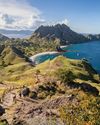
SULAWESI SENSATIONS
There are worlds within worlds and marvels untold waiting to be experienced on Indonesia's remote islands.
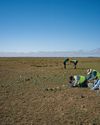
SEARCHING FOR AUSSIE DINOSAURS
Our understanding of where to find ancient life in Australia has been turned on its head by a new appreciation of the country's geology. Now the world is looking to our vast outback as the latest hotspot to locate fossils.
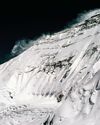
THE HARDEST NIGHT
The first Australian ascent of Mt Everest in 1984 is one of the great feats of mountaineering. Climbed by a small team semi-alpine style, with no bottled oxygen, via the Great (Norton) Couloir, it remains unrepeated 40 years later.
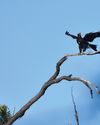
WEDGE-TAILED WONDER
The chance discovery of an eagle nest leads to an extended vigil observing normally hidden behaviours of one of nature's supreme winged marvels.
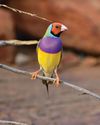
BURDENED BY BEAUTY
Northern Australia's Gouldian finch survives in huge numbers in cages around the world, but its wild population continues to struggle.
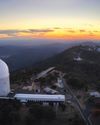
A TELESCOPE FOR A GOLDEN AGE
After a stellar 50 years as one of the country's major scientific assets, the AAT continues to play a major role in keeping Australian astronomy on the world stage.
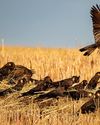
COCKY WHISPERING AT COOMALLO CREEK
This patch of remnant bush on the edge of the West Australian wheatbelt is a place loved by one of Australia's rarest bird species and the man who has studied the site for more than 50 years.

A PIONEERING PAIR
Louisa Atkinson and her mother, Charlotte, were among Australia's earliest authors, and pioneers in women's rights.

THE LONGEST WALK
Lucy Barnard is walking from Argentina to Alaska -the length of the Americas - on an extraordinary journey of endurance and adventure.
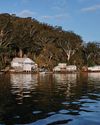
SECLUDED, BUT NOT ALONE
In an era of heightened social isolation, where many of us lead lonely lives, Dangar Island offers the chance to be part of a supportive, connected community.